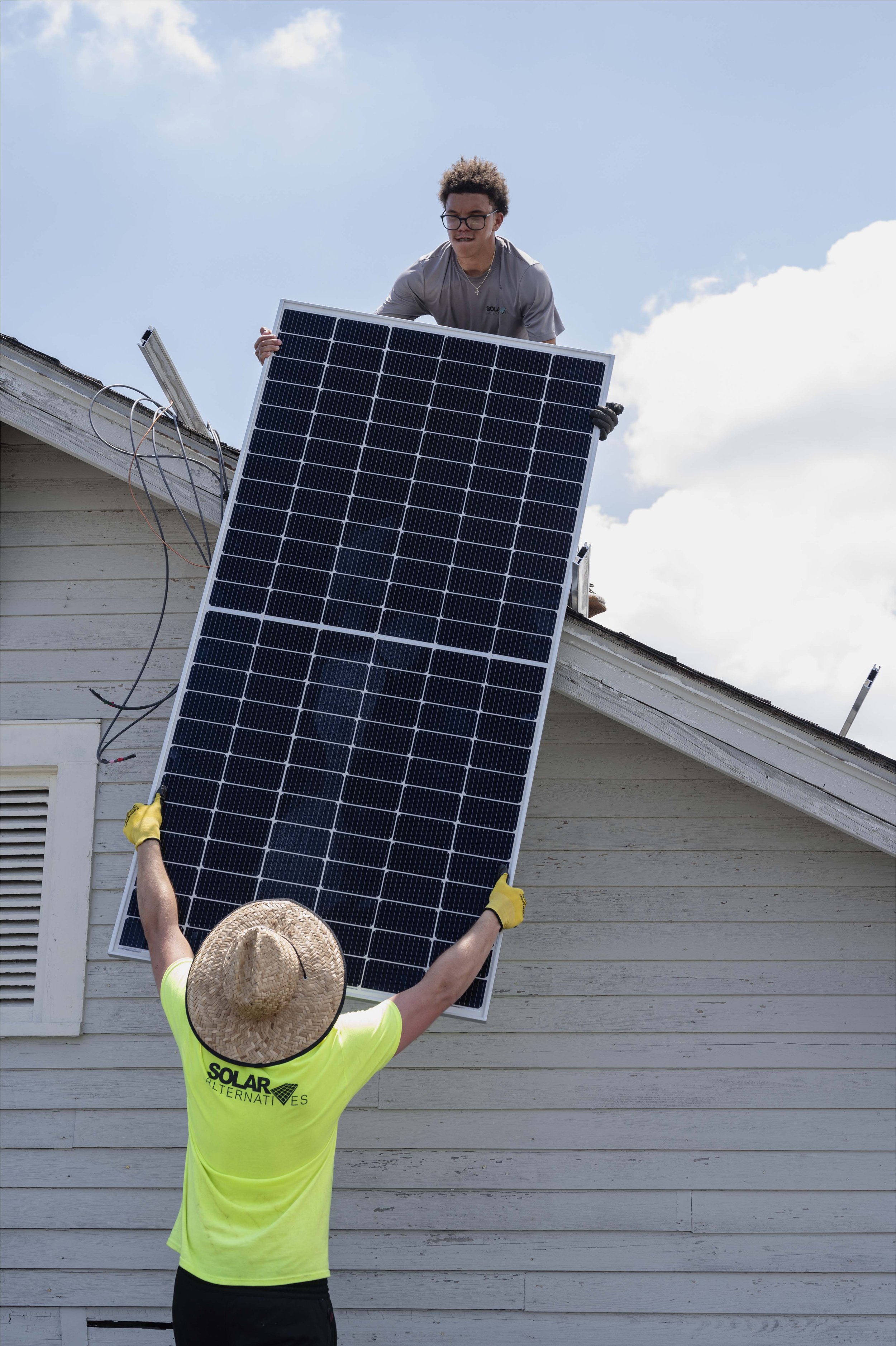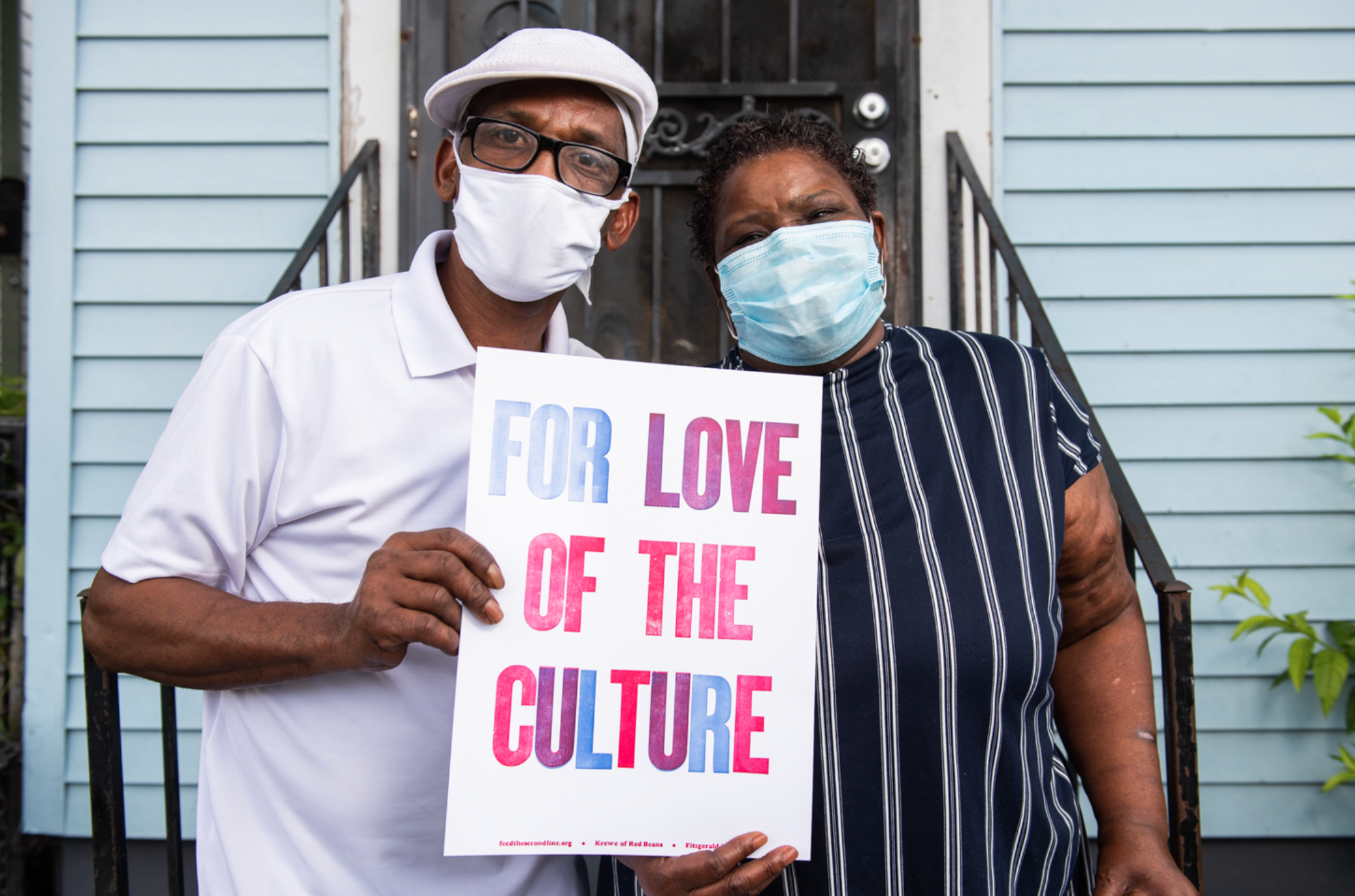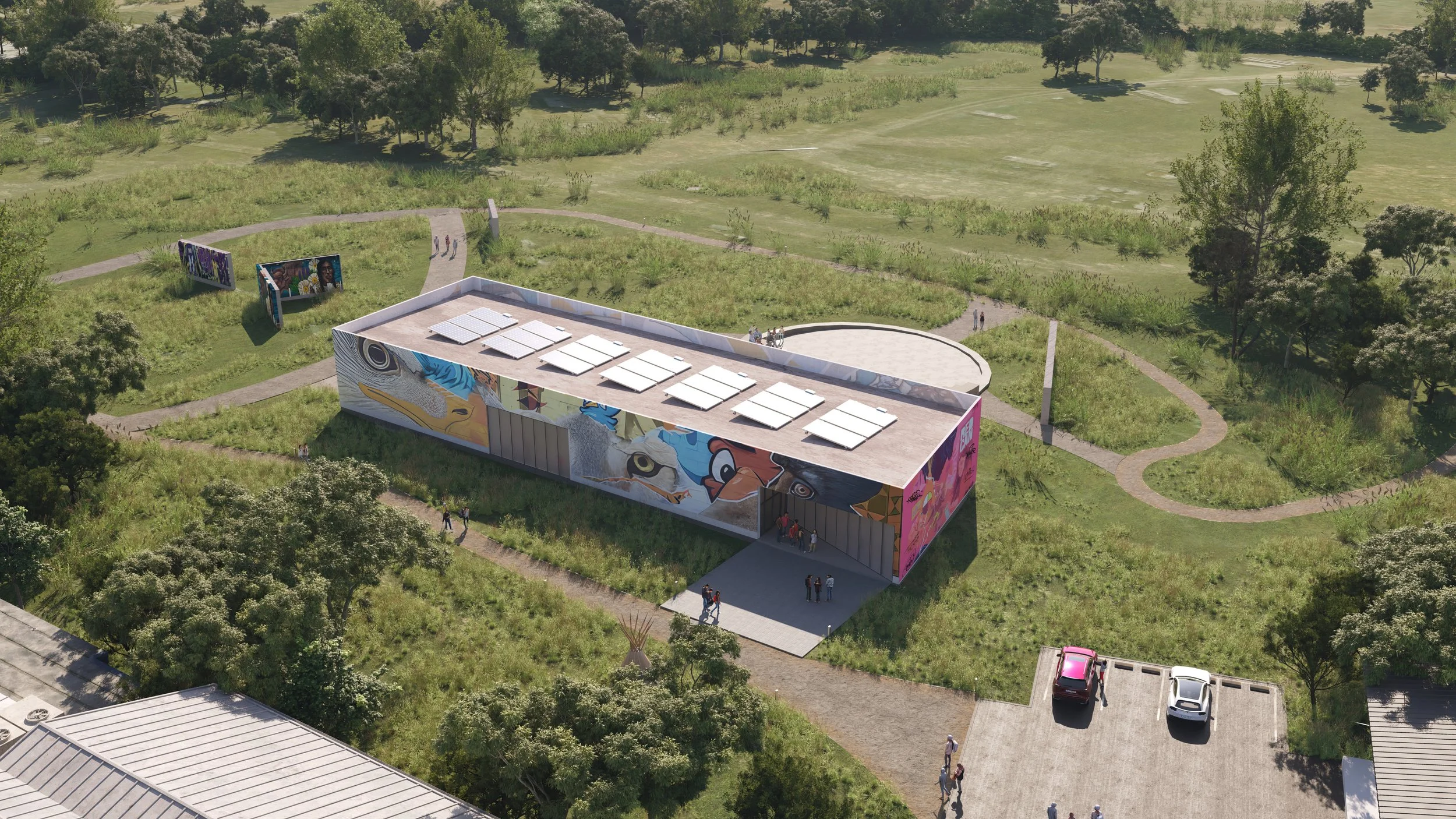Impact Spotlight
Expanding the Get Lit Stay Lit program from four solar energy hubs to eight
Creating solar-powered microgrids that will facilitate neighborhood feeding operations, cooling centers, and charging stations for the community during prolonged power outages
Strengthening local leadership by engaging community business owners in the creation of resilience hubs, fostering collaboration and ownership among residents
About
In the midst of a rapidly changing climate, New Orleans is facing increased threats from hurricanes. Since 2005’s devastating Hurricane Katrina, the city has continued to be battered by near-yearly storms. In addition to impacting daily life for city residents, power outages sabotage the tourism industry, especially restaurants – threatening historically disenfranchised BIPOC communities the most.
The city needs and has called for a decentralized power grid. In fact, New Orleans received federal funding in 2016 for microgrids. But, five years later, construction on these projects has yet to start. In response, residents have taken matters into their own hands. Feed the Second Line is a grassroots nonprofit formed by and for residents, focused on building a network of solar-powered restaurants to bolster storm resilience. The city’s 1,400 historic restaurants are poised to provide community-based mutual aid and serve as the “first responders” that New Orleans deserves.
“The restaurants can be feeding locations, and cooling centers in that August heat,” Williams elaborated. “You can get ice, water, charge your cell phone. They would create safe spaces in our communities, because not everyone can evacuate, and not everyone can afford to have solar power and batteries in their homes.”
HF Partnership
Feed the Second Line has been an HF partner since 2022. With continued funding and capacity building support, the organization plans to establish three additional solar hubs. These sites enhance community resilience in the face of rolling blackouts and intensifying storms, providing essential services during emergencies. Crucially, HF’s multi-year support covers operational costs, staff salaries, and the implementation of solar solutions, ensuring the sustainability of each site, and supporting Feed the Second Line’s long term growth. By actively engaging local business owners as community leaders, this initiative will foster collaboration and improve social cohesion, enabling residents to effectively tackle climate challenges together.
In the News







